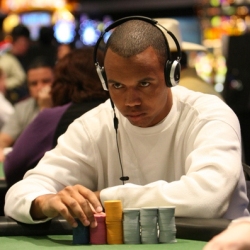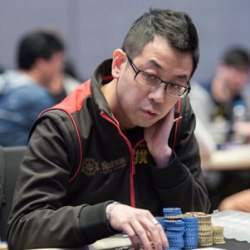Five Essential Qualities of a Winning Poker Player

There are many different kinds of successful players that exist in the poker world, from the likes of 14-times WSOP bracelet winner Phil Hellmuth to German poker prodigy Fedor Holz. However, there are certain qualities that every winning poker player does share in common, which are listed here in this article based upon the thoughts of top pro and training instructor, Doug Polk:
1: Self-Control
Self-control belongs at the top of the list as having discipline goes a long way in poker, much like it does with life in general. This ties in particularly to studying poker and learning about the game away from the card table. Playing poker is, of course, more fun than studying the game, but improving your skills certainly makes for a more enjoyable and profitable experience in the long run. There are also other elements of the game that require a certain amount of self-control, such as being disciplined enough to know when to fold usually winning hands, or having the discipline to turn down a game of poker when you aren’t playing at your best.
2: Emotional Resilience
The variance associated with poker means you’ll have times when you can’t seem to catch a break, resulting in a hit to your bankroll, even though you seem to be making all the right moves. A great player, therefore, is one that emotionally understands variance, and can take the bad with the good, whilst maintaining a positive attitude. In other words, being emotionally stable is an important aspect of succeeding in poker, even when it feels like you are drawing one bad hand or break after another.
3: Being Sensible with Money
Some people like to glorify their poker lifestyle as being one involving constant high-stakes action, whilst traveling from one exotic location to the next and staying in luxury hotels. The reality, however, is that poker pros actually live fairly modest lives built around sound financial judgement. In fact, it is fair to say that no poker pro has reached the top of their chosen career without first being good at managing their money. In the meantime, a lot of players have gone broke by shooting for the stars before achieving the bankroll to make this possible.
Given that variance is an integral part of poker, good players should therefore be financially responsible enough with their bankrolls to play at the right stakes in order to counteract the effect of variance. In addition, as well as playing within their means, many good players are also able improve their chances of success by securing the backing of someone with more money than themselves, or by selling their action.
Lasting long in poker means making smart financial choices away from the table. In other words, winning big in a poker tournament or a cash game is no reason to start living the higher roller lifestyle, and money should be set aside as you need to spend money to make money in poker.
4: Intellect
Being successful in poker is definitely related to intelligence. One just has to look at the academic backgrounds of poker pros such as Pratyush Buddiga and Vanessa Selbst, for instance, or David Eldar, who recently won the Scrabble World Championship. This doesn’t mean that you have to be a genius or an incredible strategist to succeed in poker, as there are plenty of poker training sites and materials out there covering everything from the basics to more advanced strategies. Therefore, if you are not gifted with vast amounts of natural intelligence then don’t panic as a good work ethic will provide you with all the tools necessary to be a long term winning player.
5: Luck
Any poker pro will tell you of a time that their career was saved by sheer luck alone. This doesn’t mean that luck is all you need to succeed in poker as winning in the long term takes a great deal of skill. However, it’s hard to deny that luck is an integral part of short-term success, especially for players competing in large tournaments where variance levels are exceptionally high.
Nevertheless, a great poker player has the ability to analyze how luck has influenced their results. By being able to tell the difference between bad luck and making bad moves, they can then improve as a player. A good philosophy to have is to keep your cool if your luck goes bad, whilst learning from any mistakes that you may make at such times.










